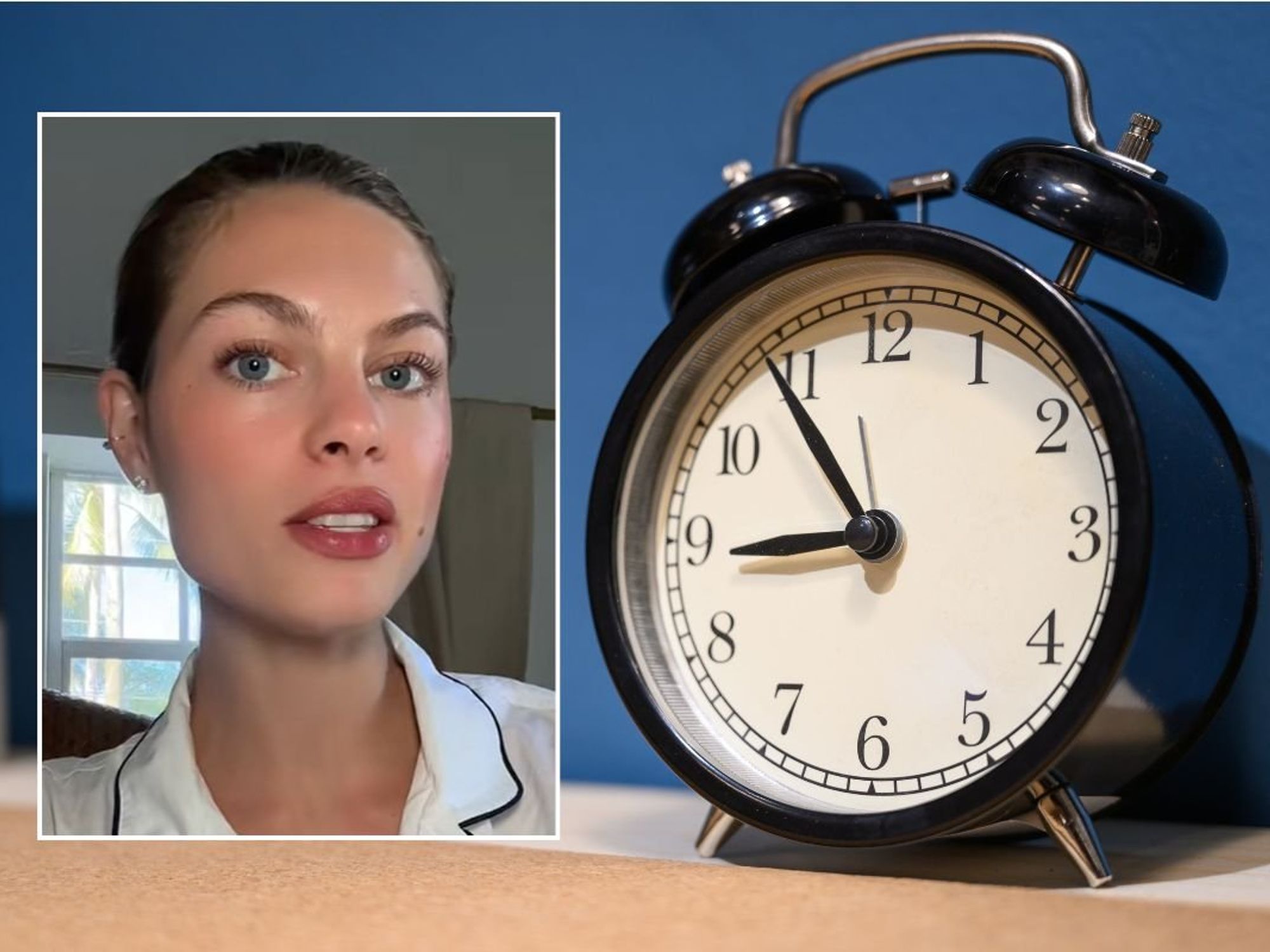Build baby build, it will be great for Britain and its young people - you can bet your house on it, says Mark Dolan

By Mark Dolan
Published: 09/04/2022
- 21:15Updated: 09/04/2022
- 23:17House prices in the UK are growing at their fastest rate since 2004, posting their eight consecutive monthly increase.
Don't Miss
Most Read
Latest
House prices in the UK are growing at their fastest rate since 2004, posting their eight consecutive monthly increase. Last month, annual house price growth increased from 12.6% in February to 14.3% in March, according to Nationwide. Now, a modest appreciation in the value of your property is desirable.
But skyrocketing house prices are bad news for everyone. A housing market is only fit for purpose, if a good proportion of the population, particularly young people, have access to it. In the 80s a mortgage was based on three times your income.
Now it is six or seven or eight times. The moral case for young people being able to get on the housing ladder in particular, is irrefutable.
Every Englishman's home is his castle. Why should young people forgo the opportunity to own an asset, put a roof over their head and build something for the future?
Why should that be the exclusive domain of people that were lucky enough to buy houses in the 70s, 80s and 90s, for a fraction of what they would cost now? They weren't clever, they were simply the beneficiaries of an under-inflated housing market. But now it's got silly.
Properties should grow in value by a few grand a year, not tens or hundreds of thousands. And ultimately a house, whilst being an asset, is where you live. Which is why properties should not become another commodity, like shares, purely for the achievement of speculative riches.
You should first and foremost want to live there, or you may have purchased a rental property, which for many, has proved to be a modern day alternative to a pension. But housing shouldn't be a get rich quick scheme, because the moment this market becomes like a night at the casino, we all lose. So the moral case for a sensible housing market is clear.
But the economic case is a strong one too. Because why should this generation of young people bother engaging with the economy, if they don't have a stake in it?
In the end, if the system doesn't work for the millions of people in this country in their 20s and 30s - some even stuck in flat shares into middle age - why should they bother working hard, doing overtime at the office, or even start their own business, if they know that even then, the dream of home ownership will be unattainable?
I predict that if home ownership proves to be unattainable in the medium to long term, the millions of people frozen out of the housing market, including those who aren't old enough to vote yet, will reject the principles of a modern, free economy.
The likelihood of a far left populist leader may come along, a Jeremy Corbyn on acid, threatening to smash the capitalist system altogether, and appropriate homes on behalf of the state, as happened in the 60s and 70s under the compulsory purchase scheme.
Who could blame young people for voting for such a figure? If our economy doesn't work for young people, they will ultimately seek leaders who can change it in their favour. And why does it help the economy so much, if people on lower incomes, are able to hold out hope of one day getting on the housing ladder?
Well, it drives ambition. You might be in a low paid job, but take the view that if you save hard enough and sacrifice over many years, you'll get something. But at the moment, giving up that Starbucks coffee or crushed avocado sandwich, giving up your Netflix account or gym membership, won't even touch the sides.
And why should you gamble your financial security by starting a business, or break your back by working long hours, or working two or even three jobs, if it doesn't get you closer to having a roof over your head?
Home ownership shouldn't be easy of course – it never was - and many of you will tell me how you scrimped and saved and struggled to buy a house, even in the 60s, 70s and 80s. But it's now harder than ever and impossible for too many. It's having an effect on our demographics too, as people wait until their 30s or even early 40s, before starting a family, because that's how long it takes to get a deposit together.
Barriers to home ownership also perpetuate class division. A dinner lady, a courier, an electrician, a security guard, a postman, a taxi driver, a soldier, a teacher, it's important for ALL of these important groups, and many more, that home ownership is a possibility. If they've got no chance, then that will revive old class divisions, that we thought we’d seen the back of.
The potential of home ownership is the essence of social mobility, as Margaret Thatcher proved in the 80s when she made council houses available for purchase by tenants, so that they could own an asset, have something to hand onto their children and have a property that they could invest in - with a conservatory, an extension or new décor.
And it also gave them an asset on which they could take out a mortgage, with which to start a business, take international holidays or buy a new car. Love her or hate her, this was a transformative policy from Margaret Thatcher, which drastically expanded the middle-class and arguably smashed the class system altogether.
So how do we fix this? Easy. We need three policies – build more houses, build more houses and build more houses. Just 11% of the UK is urban, 89% rural.
It's time to drastically loosen the rules around building on brown and indeed green belt areas, where it can be justified. It's time for a partnership between local and central government to smash NIMBYISM, the dreadful acronym which stands for “not in my back yard”.
Our great cities like London, Manchester, Birmingham, Glasgow, Cardiff and Belfast have too many individual housing units – one or two bedroom properties - which are profitable for house builders - rather than properties offering a higher density of occupation, like old-fashioned mansion blocks and, better built, higher spec, safer apartment buildings.
The government must stop building companies from sitting on land, waiting for it to appreciate, rather than building. It's simply a question of supply and demand. We've got to build baby build. The aforementioned Jeremy Corbyn with whom I don't agree about much, famously proposed building a million new homes in five years, at a cost of £75 billion. Jez we can.
Sounds a lot doesn't it, £75 billion and yet it's an absolute drop in the ocean compared to the hundreds of billions, which we spaffed away in the course of this pandemic. What would you rather have spent the money on over the last two years?
A test and trace system that didn't work for £37 billion? Or half million new homes for the same cash, with 500 million quid in spare change left over. Which would be a greater legacy do you think? Useless test and trace or half a million new properties for the public?
It's a no-brainer isn't it? It's time for a house building revolution in this country. And if you increase supply, house prices will come down to a sustainable level and with more supply, rents will fall too. And the rental market will always be an important part of the mix, which many millions will always choose.
And these new houses would be more eco friendly too, so Insulate Britain won’t have to lie down on any more motorways.
Sorting out housing, is a moral and economic imperative and will transform the fortunes of this country, just as it did when we rebuilt Britain after the Second World War.
A huge investment in housing happened in the 50s and 60s, which paved the way for an economic miracle in the 80s and 90s.
And just think of the high quality jobs it will create. Build baby build. It will be great for Britain, especially its young people. You can bet your house on it.








